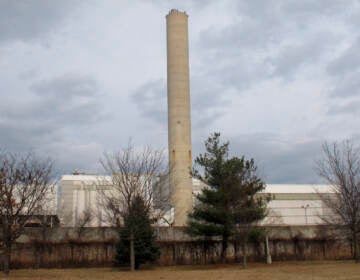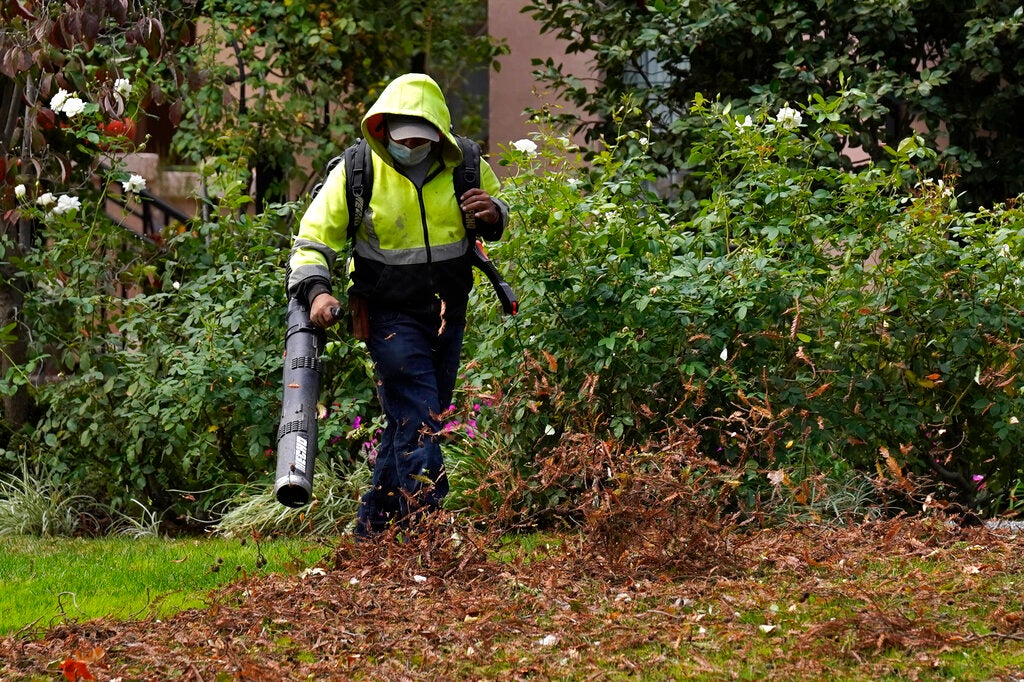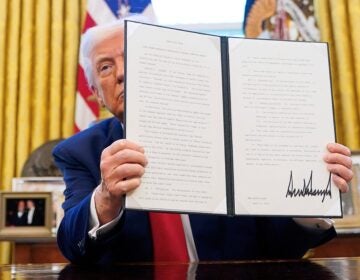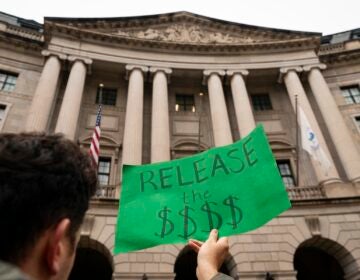New Jersey adopts long-awaited ‘environmental justice’ rules
Supporters said the new rules ensure people in vulnerable communities have more of a say in whether permits for pollution-generating facilities can be granted or renewed.
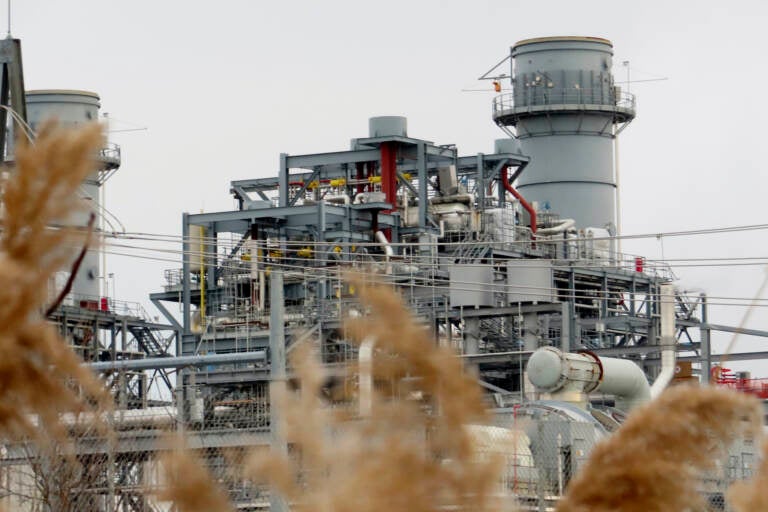
The CPV power plant operates in Woodbridge N.J. on Feb. 27, 2023. The company's plan to a second gas-fired power plant next to the existing one is being opposed by residents of the mainly minority and low-income communities around the plant who say an environmental justice law signed over two years ago by New Jersey Gov. Phil Murphy but which has yet to take full effect should prevent the plant from being built. (AP Photo/Wayne Parry)
More than two years after New Jersey Governor Phil Murphy signed a measure known as the “environmental justice law,” the state announced that it has fully adopted the long-awaited regulations aimed at protecting historically overburdened communities from additional pollution.
“As we enter Earth Week, the final adoption of the Department of Environmental Protection’s [environmental justice] rules will further the promise of environmental justice by prioritizing meaningful community engagement, reducing public health risks through the use of innovative pollution controls, and limiting adverse impacts that new pollution-generating facilities can have in already vulnerable communities,” Murphy said in a statement Monday afternoon.
The rules require industries seeking permits to avoid and mitigate risks in areas the state classifies as “environmentally overburdened communities.” This means cities like Camden and Newark, which are, “subjected to a disproportionately high number of environmental and public health stressors—such as mobile sources of pollution, and numerous industrial, commercial, and governmental stationary sources of pollution.”
New development must undergo an environmental impact analysis and regulators essentially have the power to block new permits in overburdened communities. Projects up for renewal will also face a similar process.
The areas targeted in this law include many neighborhoods with people on low-to-moderate income, as well as people of color. These areas tend to have more polluting industries in them than affluent and whiter (sometimes neighboring) areas, according to the DEP.
Supporters said the new rules will also ensure that people who live in vulnerable communities have more of a say in whether permits for pollution-generating facilities can be granted or renewed.
“It rights historic wrongs for communities that have been historically excluded and dumped on by the state of New Jersey,” said Maria Lopez-Nunez, Deputy Director of Advocacy and Organizing at the Ironbound Community Corporation, a Newark organization that partners with groups across the state to raise awareness about environmental justice.
Lopez-Nunez said many advocates are happy that the new rules don’t provide exceptions for industries claiming to significantly boost local tax rolls despite associated health risks, as advocates once feared.
“That would have essentially gutted the rules and rendered the law meaningless,” Lopez-Nunez said.
The Ironbound Community Corporation is part of a grassroots coalition fighting a new power plant in Newark’s immigrant-rich, working-class Ironbound neighborhood.
The Murphy Administration touted the adoption as a historic first among U.S. states. In 2020, New Jersey became the first state in the nation to require mandatory permit denials if an environmental justice analysis determines a new facility will have a disproportionately negative impact on overburdened communities.
Murphy aims to position New Jersey as a leader in the fight against climate change, and announced in February that the state is committed to ending the sale of gasoline-powered vehicles and having its full economy powered by clean energy by 2035.

Get daily updates from WHYY News!
WHYY is your source for fact-based, in-depth journalism and information. As a nonprofit organization, we rely on financial support from readers like you. Please give today.


